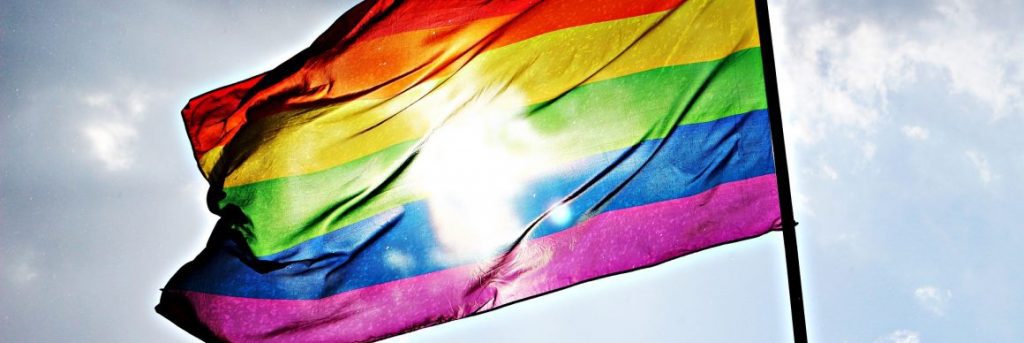SDSU Raises Rainbow Flag for LGBTQ+ Community

For the 9th year in a row, San Diego State University held its Rainbow Flag Raising Ceremony, which symbolized the pride and diversity of the SDSU LGBTQ+ community. This year’s event kicked off on July 13 at the Conrad Prebys Aztec Student Union flagpole.
The goal of the ceremony is to celebrate the diversity of sexual orientations and identifications within the LGBTQ+ community. The annual event works in conjunction with the San Diego LGBT Pride Parade to increase visibility for the LGBTQ+ community across San Diego.
Christopher Lujan, the Pride Center Coordinator, raised the rainbow flag and offered words for those in attendance. He spoke about seeing the flag as more than just a symbol of unity but also as a memorial for those who lost their lives at the Orlando gay club on June 12.
In a News Center release from SDSU, Lujan also emphasized how the school is focused on providing a safe place for LGBTQ+ students. “It’s not often that a campus has as much support for the LGBTQ+ community as SDSU does,” he said. “This is a safe space for LGBTQ+ students, and I think that really speaks to their ability to be successful at SDSU. When students feel safe, they’re able to move forward and do well academically.”
SDSU’s Pride Center
The SDSU Pride Center opened its doors in 2014. And, since that time, the Center has been an active member of the LGBTQ+ community. Its goal on campus is to help LGBTQ+ students have a safe place to explore their identity and learn from others. It’s an involved community on campus that gives students a place to belong.
“Since its opening, the Pride Center has become a vibrant and inclusive community center on campus,” said Eric Rivera, Vice President of Student Affairs. “When students feel a sense of belonging, they have the capacity to grow academically and personally. The center serves as a source of real connection, which creates an affinity to the university long after graduation.”
SDSU ranks among the top 25 LGBT-friendly universities in the U.S. The ranking is based on the Campus Pride Index—a tool that looks at the University’s LGBT-friendly policies, its programs, and its practices.
